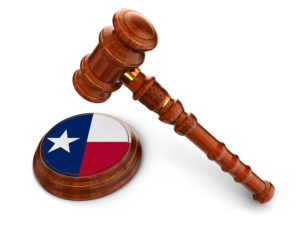If someone dies intestate, that means they died without leaving a will. When that happens in Texas, the law is clear about what happens next. If your parent dies intestate, what happens to the estate will depend on whether your other parent is still alive and was married to your deceased parent at the time of the death.
Petition the Probate Court to be the Executor
You, another family member, or a person your parent trusted may petition the court and ask to be appointed executor of the estate. The court will then send notices to parties it believes may be interested to give them a chance to object.
If anyone objects, or someone in addition to you asks to be appointed, the court will have a hearing and determine who will be the executor, who may also be referred to as the personal representative. The job of the executor is to identify the assets and be sure they are distributed according to the law.
Texas Property Distribution Laws
If your parent died intestate, your parent’s assets are distributed according to Texas law. It doesn’t matter if there is strong evidence that the parent had a different intent, if there is no will, the law is followed. That law provides in part:
- If your parent left a spouse and children who are also children of the spouse, the spouse gets all community property and one-third of your deceased parent’s separate property. Additionally, the spouse gets the right to use any real estate for the remainder of the living spouse’s life. The rest is divided among you and your siblings.
- If your parent left a spouse and children, but the children are not the children of the living spouse, the spouse inherits half of the community property, one-third of the separate property, the right to use the real estate for the remainder of their life, and the children inherit everything else, including half of the community property, to be divided among the children.
- If your parent had no spouse, everything goes to you and your parent’s other children to be divided among you.
Property That Passes Outside of Probate
Some property passes to beneficiaries outside of probate include. A few examples are:
- Funds in a bank account that states the name of a beneficiary to be paid upon the death of the owner of the bank account.]
- Proceeds of a life insurance policy that names beneficiaries.
- Property owned in joint tenancy with another person.
For more information about what happens to your parent’s estate when they die without a will, contact our probate attorneys at Springer & Lyle.


Leave a Reply
You must be logged in to post a comment.